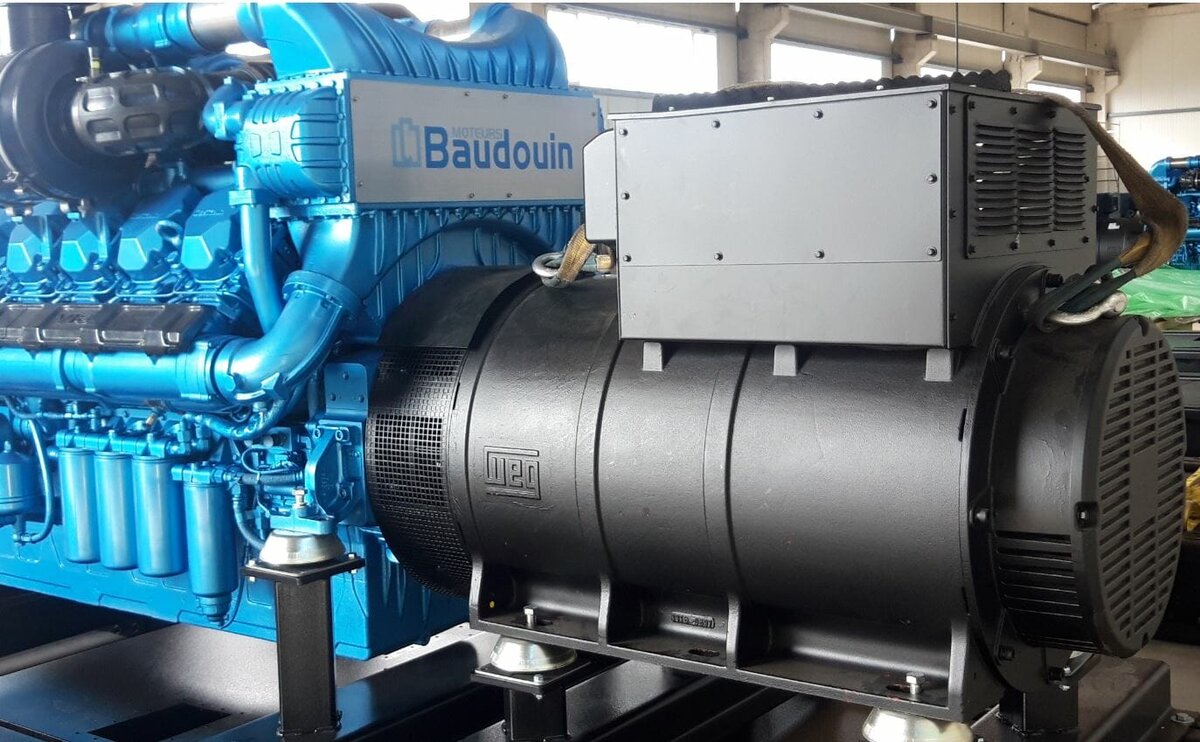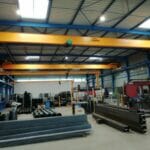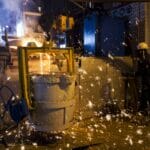Motor and alternator manufacturer, WEG has supplied eight 1,700 kVA alternators to provide emergency power to the Clinical Centre of Serbia’s newly-expanded facilities. At a time when hospitals globally are a focal point in the fight against COVID-19, this project highlights the importance of effective backup power systems to cover unexpected mains power failure.
The Clinical Centre of Serbia, located in country’s capital, Belgrade, has 3,150 hospital beds, considered to be the highest number in Europe, and around one million patients are treated there every year. In August 2018, the president of Serbia, Aleksander Vučić announced a government investment of 110 million euros into a complex facilities reconstruction at the centre, to be implemented between 2018 and 2022.
This new construction will provide an additional 28,000 square metres of new buildings, including new operating rooms, dispensaries and a thousand or more additional bed units. As well as new air-conditioning systems and mechanical installations, a major challenge, as with any hospital build, is to provide an effective power supply system.
Adverse weather conditions, spikes in demand or any kind of technical malfunctions on the main power grid, can interrupt the supply of power and adversely affect the many sensitive activities that take place in the medical centre. Hospitals, therefore, need a back-up electrical system, often in the form of diesel generators to ensure continuous power.
The bidding process to manufacture these systems for the Clinical Centre of Serbia was intense. All of the major world producers of generators were involved, striving to meet the strict and challenging criteria of the brief. Extended warranty and experience in similar applications were specified, along with competitive pricing.
In the end, Serbia’s biggest producer of generator sets, Tehnolink won the contract to supply the generators. The company designs, manufactures, assembles and services diesel- and gas-powered generator sets. It was also down to Tehnolink to source the best components for the job including the alternators, engines and radiators, in order to provide the Serbian hospital with an effective dependable power supply system.
Tehnolink considered a range of manufacturers for the supply of the generator alternators, as this would be a critical part of the generator that converts mechanical energy into electrical energy.
To win the project with Tehnolink, WEG had to present a case for its technical capabilities. WEG’s alternators stood out from the competition because of their solid construction cast iron frame, specifically the manufacturer’s AG10 line, which were preferred to the rolled-steel alternatives. The cast iron frame allows for better power density, reduced vibration and more efficient cooling.
WEG also offered its own technology with the alternator, to emulate the characteristics of an exterior permanent magnet generator, without increasing the length and price of the machine. WEG’s I-PMG technology is an integrated separate winding within the machine that eliminates the need for an external PMG, which allows for a smaller footprint than competitors’ systems and keeps costs down.
WEG alternators are designed and fabricated in-house and come with permanent magnet inserts (PMI) on the exciter field, as standard. With other manufacturers, this is an optional extra and sometimes not even presented as an option unless an alternator of 1,000 kVA or more is specified by the buyer. The PMI removes issues of loss of excitation in facilities with big loads, and allows instantaneous power on start-up. There is no need to flash the windings in case of a loss of residual magnetism. In critical facilities, such as hospitals, this is essential.
WEG delivered the parts to Tehnolink, with a quick turnaround on manufacturing. The parts were shipped out from its headquarters in Jaraguá do Sul, Brazil. To save time, WEG opted to send the parts to Genova, Italy, rather than to the UK, which saved almost a month in the transport time.
“We have worked with Tehnolink since 2016, but this project has strengthened our relationship even further,” explained Manoj Kakaya, industry manager and generator sales at WEG. “We’ve witnessed the success and growth of Tehnolink in recent years, attributed to their high-quality generator builds, and we are happy to work with them as they take on big projects, like this.”
The alternators from WEG will provide 1,500 kVA continuous power and 1,700 kVA standby power. They will be coupled up to diesel engines manufactured by Baudouin Engines and radiators manufactured by FDL.
“We did not have any doubts about which partner we were going to select for this project,” said Bozidar Markovic at Tehnolink. “WEG has very good technical support, and a very flexible and well-balanced commercial policy. The project started in November 2019 and, by January 2020, all the products were assembled and delivered.”
For more information on WEG and its range of alternators, turbines and transformers for electricity generation, transmission and distribution, visit weg.net.





